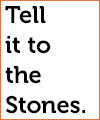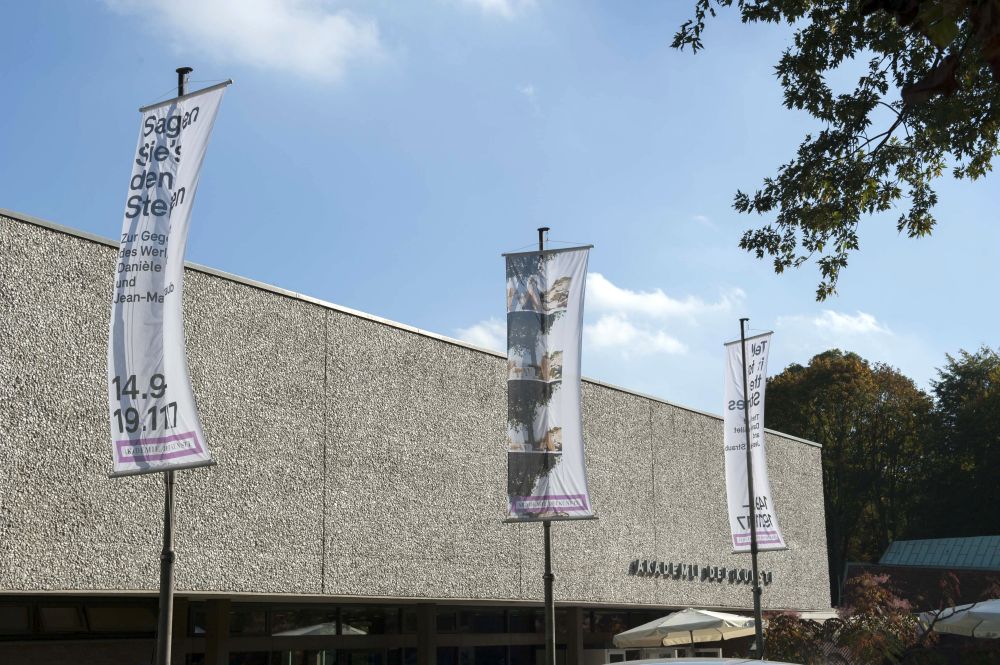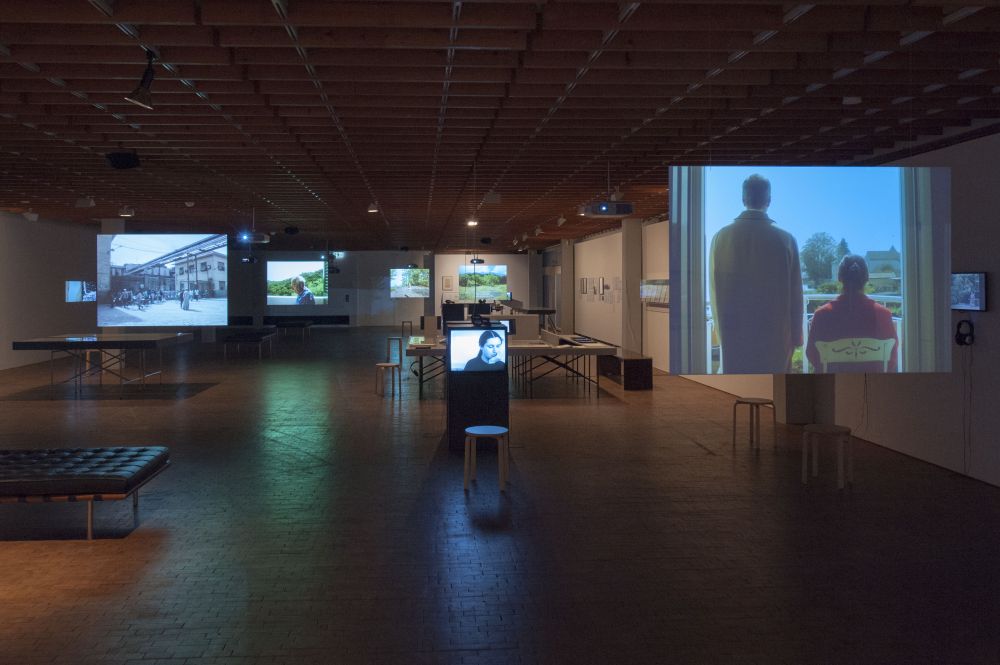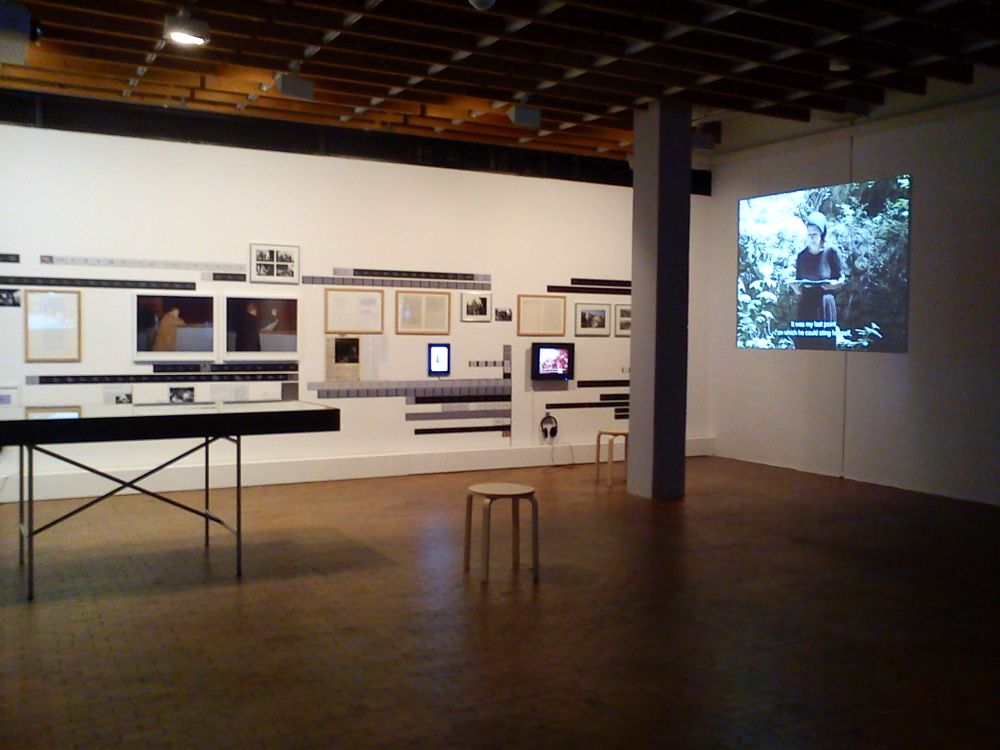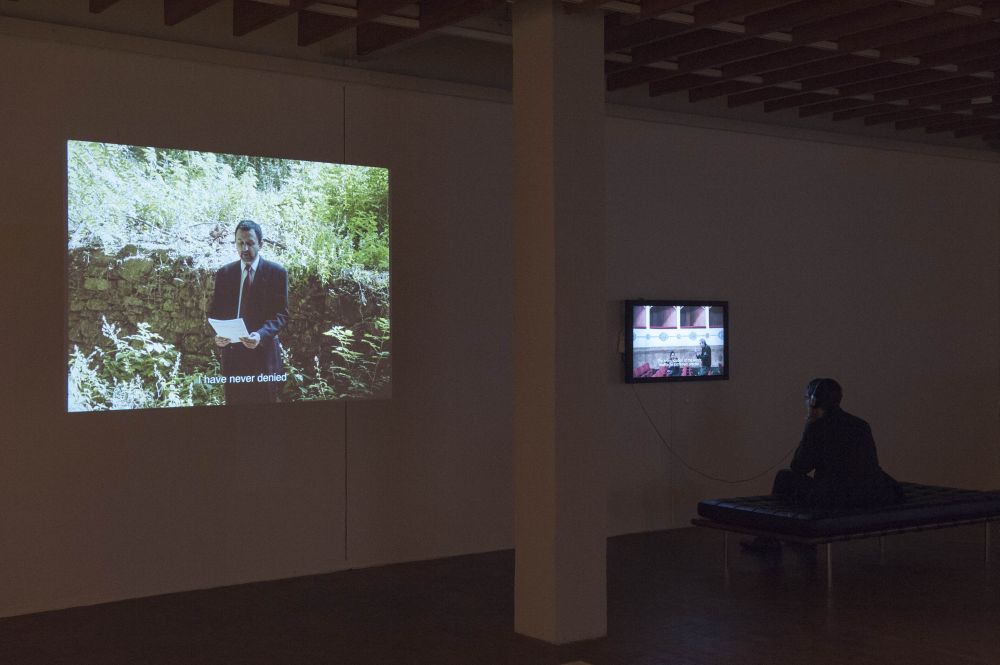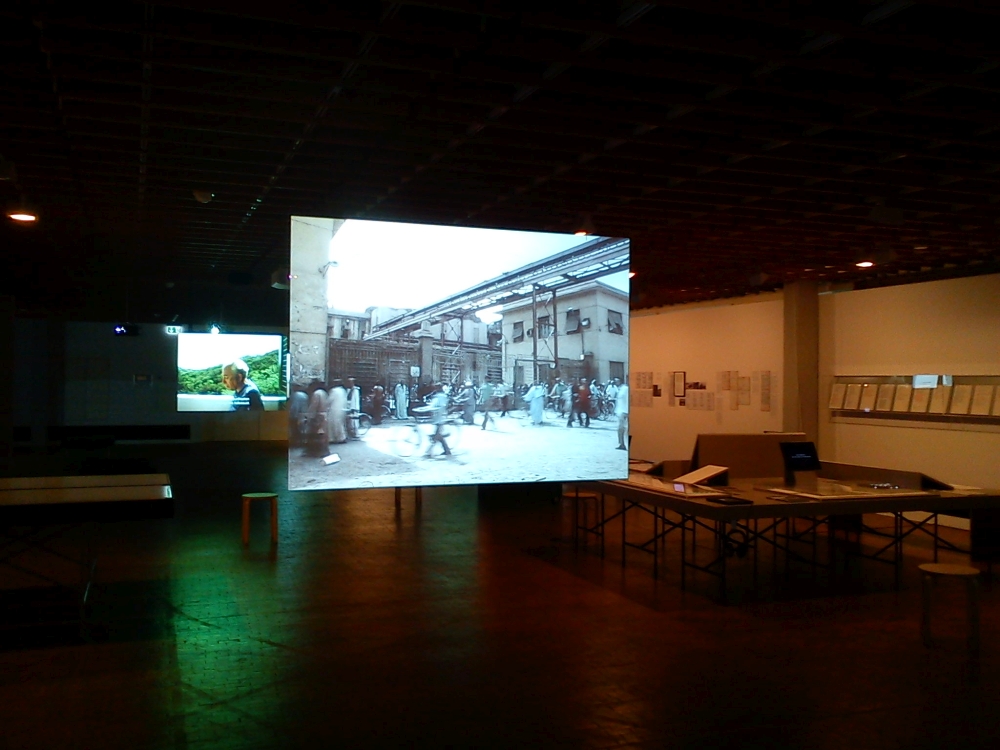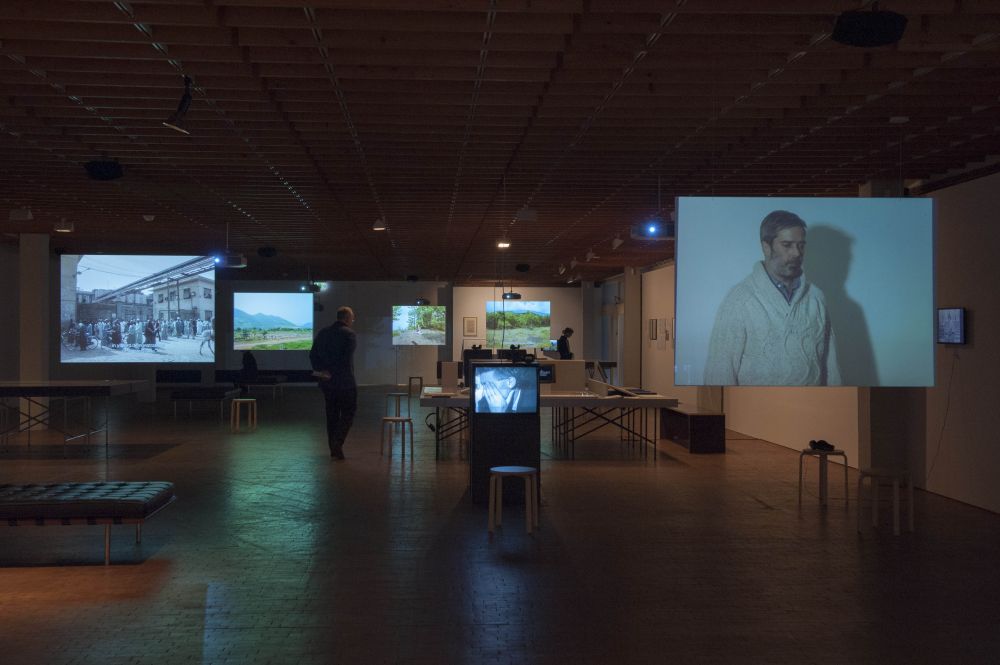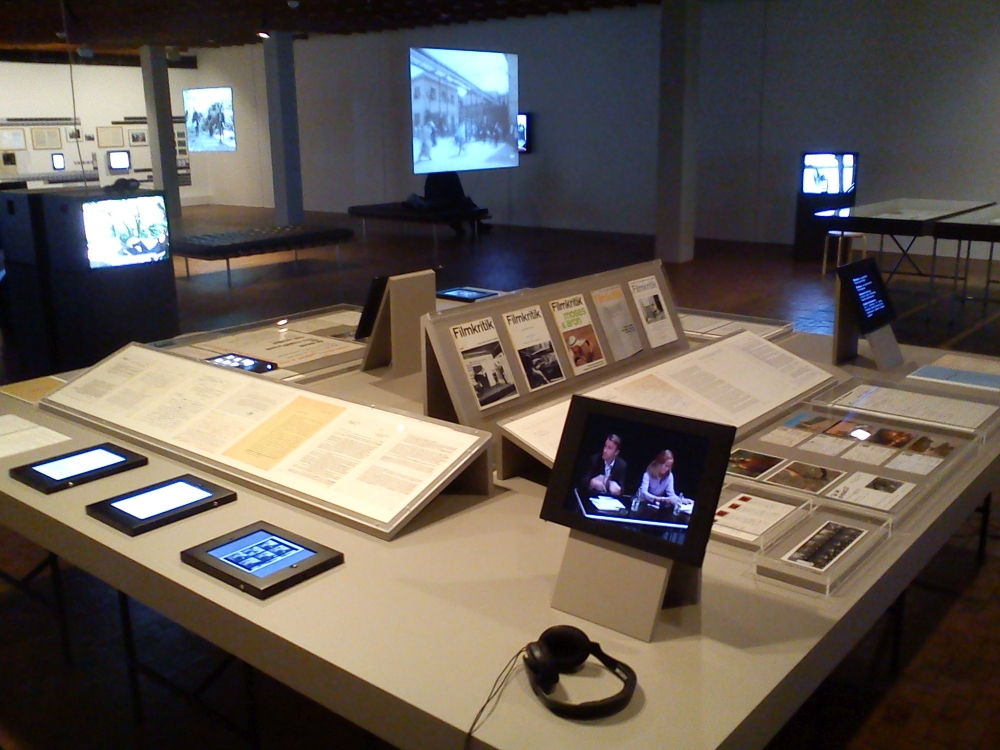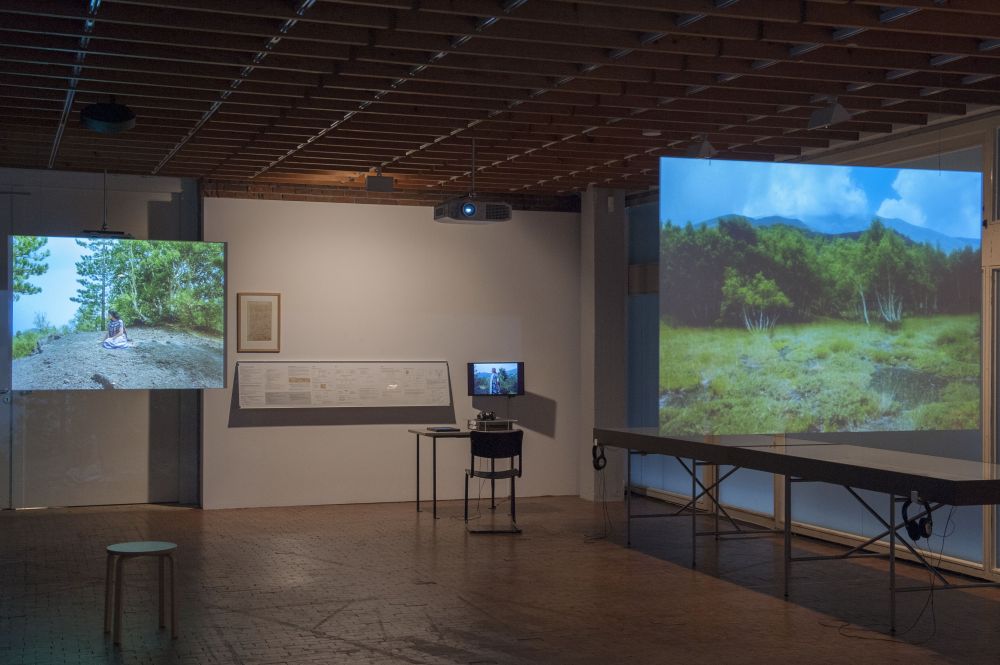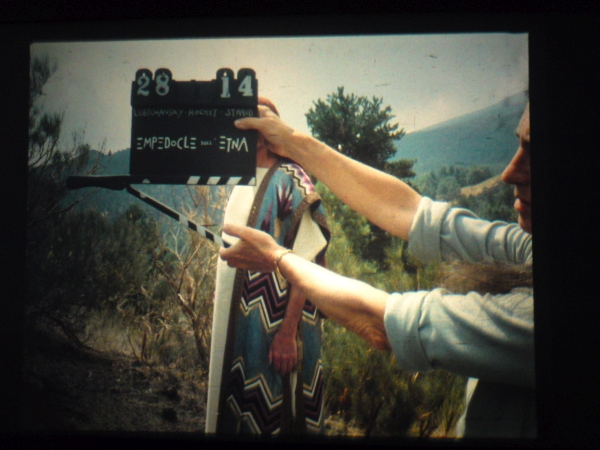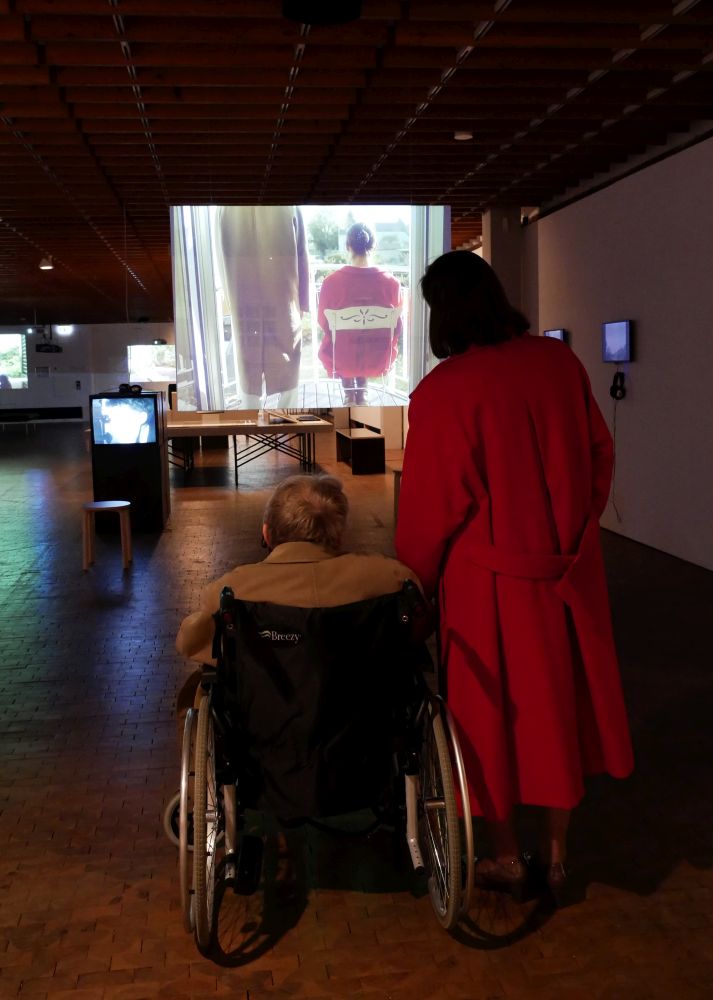Tell it to the Stones – The work of Danièle Huillet and Jean-Marie Straub
Exhibition at Akademie der Künste, Hanseatenweg, Berlin
September 14 - November 19, 2017
It is impossible to exhibit the films of Danièle Huillet and Jean-Marie Straub – they resist casual consumption. They are made to be seen in the cinema, and it remains the best venue to appreciate their political as well as sensory dimensions. Huillet/Straub take their audiences seriously and they respect them enough not to want to entertain them. They invite viewers to take part in their work by demanding something in return: to watch and to listen. And they show what cinema usually takes great pains to conceal – that it is work to read or perform a text, to compose and perform music, to make a decision and to live a life. An inestimable generosity underlies this position.
What can be shown, at least to a certain degree, is the amount of work that has gone into the films. It remains largely invisible, however, because its purpose was to make something else possible. This was above all Danièle Huillet’s part in the production process of this joint oeuvre. She was producer and film editor, director’s assistant and production manager, actress, and dialogue coach. Traces of her work can be found throughout the exhibition – those of a correspondent, agent, and translator who turned imagined potentialities into technical realities. It was a role that epitomises what Jean-Marie Straub associates with the term “communists”: People who are able to produce a communal life and work.
Kommunisten (2014), one of the most recent films by Jean-Marie Straub, is a six-part retrospective and compilation of works the filmmakers created together. This predefined selection structures the exhibition, allowing an encounter with the work. Constellations of diverse documents pick up the threads laid out by this choice and lead back to the creative processes, to specific places, and to a wide network of colleagues, friends, and supporters. In addition, six international artists have produced new works that take up, continue, annotate, and redirect these aesthetic and topographical journeys.
“The films are what they are thanks to the work that went into them. (...) And a majority of the work, before and during filming, has to do with avoiding clichés; blowing them up, ‘dynamiting’ them. There is a word that’s no longer in use, that has become a cliché: It’s about dialectics. Damn! The point is that you can never say or show something where the possibility of resistance from its opposite cannot also be sensed.”
– Jean-Marie Straub
Art works in the exhibition by:
Harald Bergmann, Renato Berta, Wilfried Böing, Robert Bramkamp/Susanne Weirich/Rembert Hüser/Hubertus Müll, Pedro Costa, Harun Farocki, Luisa Greenfield, Louis Henderson, Mike Jarmon, Michael Klier, Jan Lemitz, Armin Linke/Rinaldo Censi, William Lubtchansky, Volker Pantenburg, Maggie Perlado, Ekko von Schwichow, Oraib Toukan, Barbara Ulrich, Antonia Weiße, Ala Younis.
Films by Danièle Huillet and Jean-Marie Straub in the exhibition:
L‘Arrotino, D: Huillet/Straub, 2001, 7´
Dolando, D: Huillet/Straub, 2002, 7´
Kommunisten, D: Jean-Marie Straub, 2014, 70´
La guerre d‘Algérie!, D: Jean-Marie Straub, 2014, 2´
Omaggio all‘arte italiana, D: Jean-Marie Straub, 2015, 10´
Additional items on loan for the exhibition by:
Bauhaus University Weimar, Manfred Bauschulte, BELVA Film (Barbara Ulrich, Jean-Marie Straub), Manfred Blank, Film Museum Munich, Fondazione Cineteca di Bologna, Tobias Hering, Andreas von Rauch, Rainer Rother, Salzgeber & Co. Medien GmbH, Stiftung Deutsche Kinemathek, Viennale, Antonia Weiße.
